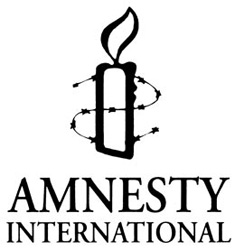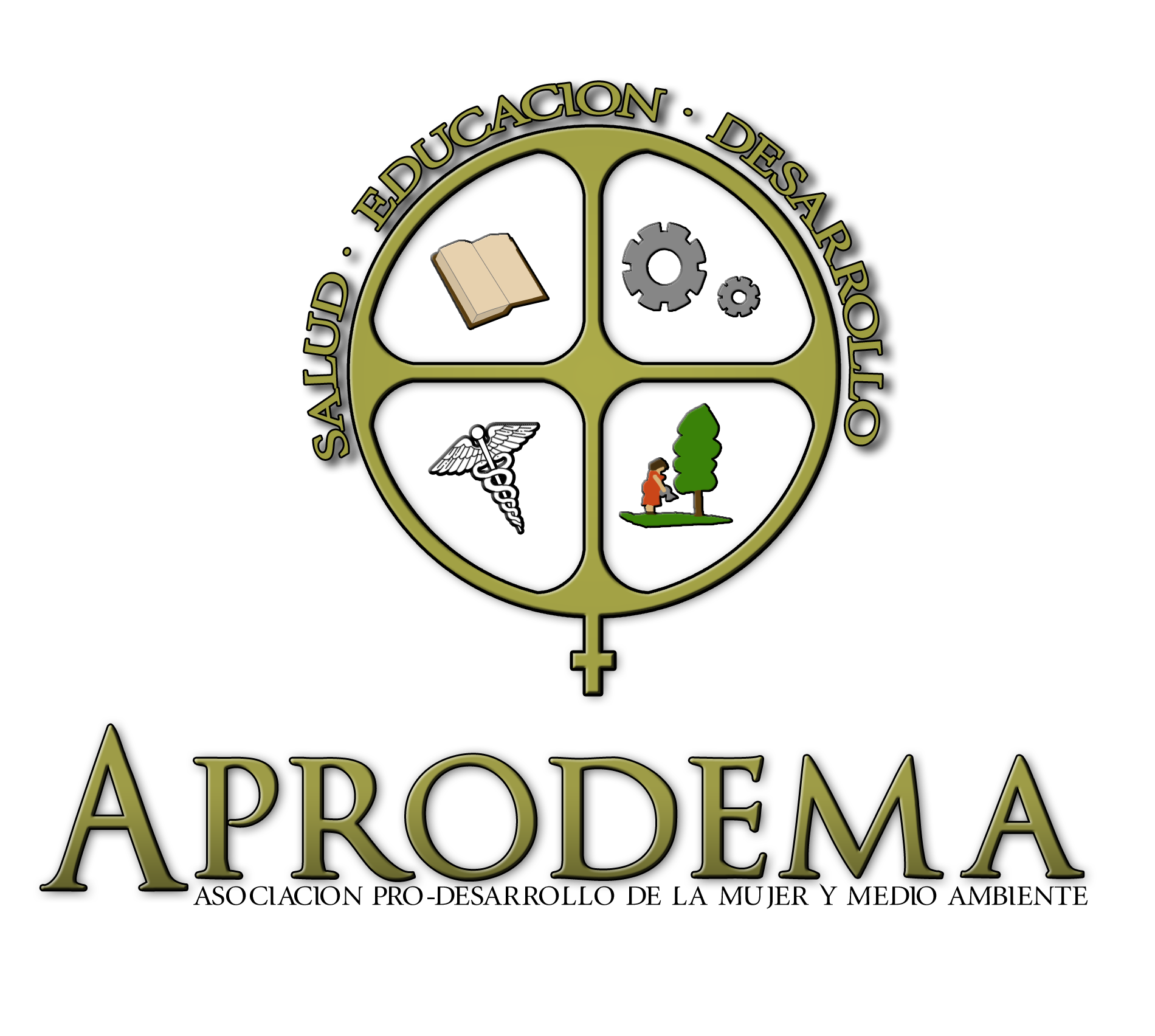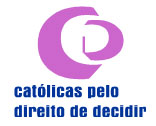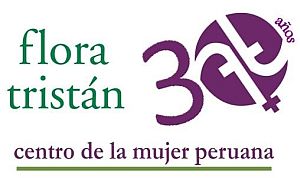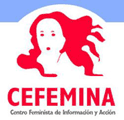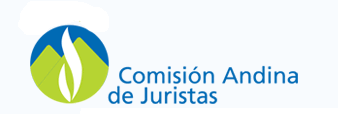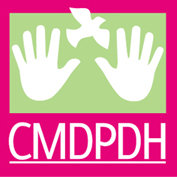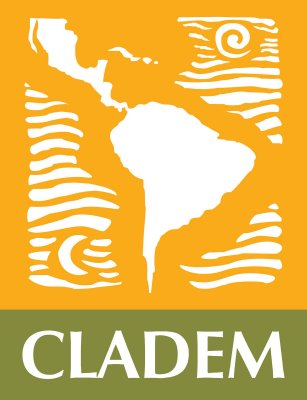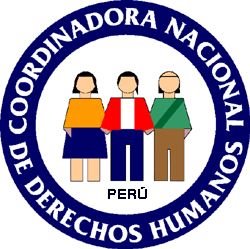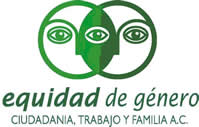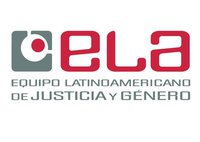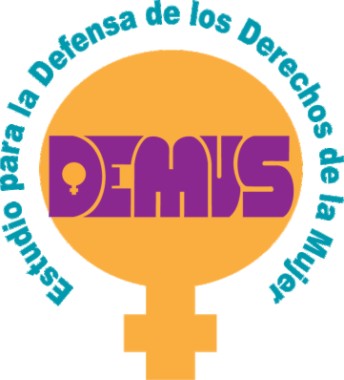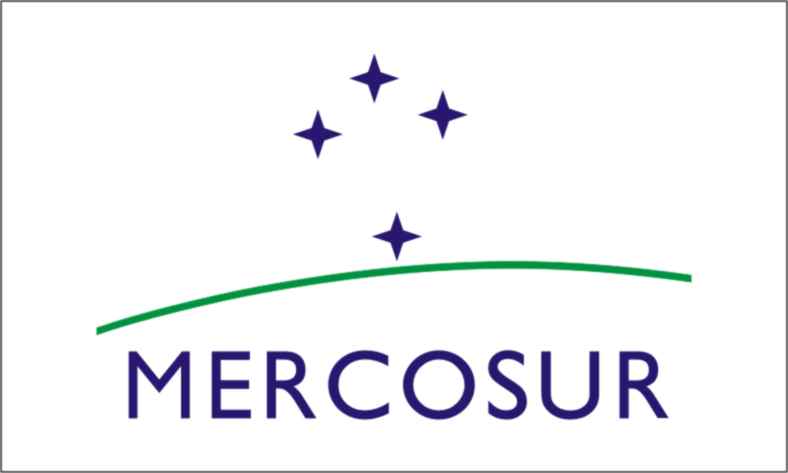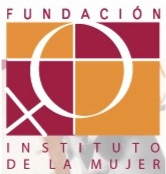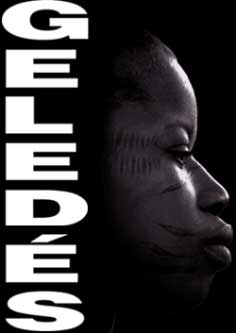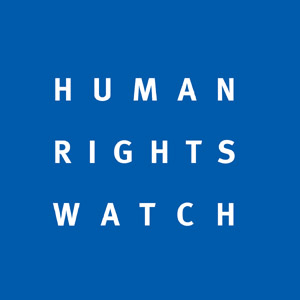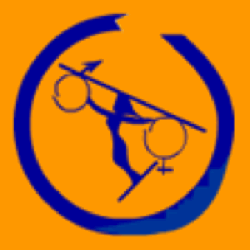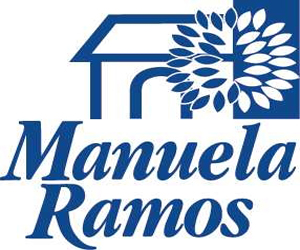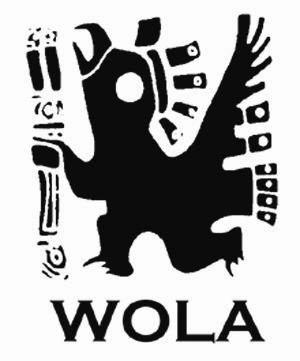- English
- Español
Civil Society Organizations
Civil society is represented in the Mechanism through various nongovernmental organizations whose mission and objective are to promote, defend, and protect women's rights.
The civil society organizations may participate during the stages of evaluation and analysis and of follow-up to the Mechanism's recommendations, by presenting shadow reports to the Committee of Experts of the MESECVI on the implementation of the Convention of Belém do Pará by the states parties.
Likewise, the civil society organizations may support the Mechanism by disseminating the instruments and reports published by the CIM and by monitoring and following up on compliance with the recommendations made by the Conference of States Parties.
To join the MESECVI civil society network, contact the Secretariat at: mesecvi@oas.org
Directory of Civil Society Organizations
|
Amnesty International is an independent nongovernmental organization founded in London, England, in 1961. It has more than three million supporters, members, and activists in over 150 countries and territories who campaign to end violations of the human rights embodied in the Universal Declaration of Human Rights and other international human rights instruments. |
|
Asociación para el Desarrollo de la Mujer Negra Costarricense (Centro de Mujeres Afrocostarricenses) is a nonprofit organization established in Limón, Costa Rica, in 1992. Its mission is to educate society by promoting the cultural, economic, political, and social development of Afro-Costa Rican women and populations. To achieve its objectives, it holds educational seminars and meetings with leaders of civil society organizations to encourage the reporting of incidents of racial discrimination. |
|
Association for the Prevention of Torture (APT) is a nonprofit nongovernmental organization founded in Switzerland in 1992. It was established to combat torture and human rights violations by establishing a system for the inspection of places of detention the world over and, subsequently, by creating international mechanisms for preventing torture. |
|
Asociación Pro-desarrollo de la Mujer y Medio Ambiente (APRODEMA) is a nonprofit association founded in Santo Domingo, Dominican Republic, in 1994. Its purpose is to improve the standard of living and promote and defend the human rights of Dominicans of Haitian descent, migrants, and impoverished populations, and to prevent racial and gender discrimination against women of Haitian descent. |
Association Femmes Soleil d’Haiti (AFASDA) is a nonprofit organization founded in Cap-Haitien, Haiti, in 1997. It works to help and enable Haitian women to participate in all aspects of social life by promoting social and economic development and a democratic society respectful of women's human rights. AFASDA achieves its objectives through seminars, the dissemination of information through radio and television, and the creation of community centers. |
|
|
Asociación Venezolana de Mujeres (AVM) is a nonprofit nongovernmental organization founded in Caracas, Venezuela, in 1936. Its mission is to provide comprehensive support and assistance to women as the foundation of the family and Venezuelan society, through the volunteer work of its associates and employees and through national and international partnerships. Its activities revolve around programs and projects geared toward support, development, and leadership of women, promoting their human rights and preventing the abuse of children and adolescents. www.asociacionvenezolanademujeres.org |
|
Católicas pelo Direito de Decidir is an interdenominational, feminist nongovernmental organization based in Sao Paolo, Brazil. Founded in 1944, it focuses on the promotion of women's sexual and reproductive rights by developing and executing capacity-building projects, creating public media, and participating in religious and social movements, among other activities. It works with the Latin American Network of Católicas por El Derecho a Decidir, with Católicas por El Derecho a Decidir (Spain), and with Catholics for Choice (U.S.). |
|
Centro Interamericano contra la Desaparición, Explotación, Trata y Tráfico (CIDETT) is a nonprofit association founded in Lima, Peru, in 2006. It works through regional networks and coordinates its efforts with government authorities and approximately 300 national and international organizations, in order to execute projects to support initiatives to combat the disappearance and exploitation of, and trafficking in, persons. It also seeks to develop and promote strategies and public policies for locating missing persons. http://www.cidett.org/ |
Centro de la Mujer Peruana “Flora Tristán” is a nonprofit civil society organization established in Lima, Peru, in 1979. Its mission is to promote and protect women's human rights through coordination of the national, regional, and international women's movements. Accordingly, it develops strategies for research, training, advisory services, communications, legal and health services, and the production and dissemination of information.. |
|
|
Centro Feminista de Información y Acción (CEFEMINA) is a nonprofit, nongovernmental organization formally established in the Republic of Costa Rica in 1981. Its objectives are to help women advance in the areas of culture, family, work, education, health, and sports. It strives to bring about human development by pursuing an enhanced quality of life, respect for women's rights, and the eradication of all forms of discrimination against women, female adolescents, and girls. |
|
Centro por la Justicia y el Derecho Internacional (CEJIL) is a regional nongovernmental organization founded in 1991 for the purpose of bringing about the full exercise of human rights in the Americas and the Caribbean. A central component of its work is the defense of human rights before the Inter-American Commission on Human Rights and the Inter-American Court of Human Rights, thus promoting the implementation of international norms in the OAS member states. |
|
Regional Coalition against Trafficking in Women and Children in Latin America and the Caribbean (CATW-LAC) was established in 1990 as a regional network of the Coalition against Trafficking in Women, a nongovernmental organization that promotes women's human rights. Its purpose is to prevent and encourage reporting of cases of trafficking in persons, especially women and children, and to afford protection to said persons. The CATW-LAC is made up of national networks in 19 countries of the region and of affiliated groups and individuals that design campaigns, provide protective services, and conduct research and training on the prosecution of trafficking, both domestically and internationally. |
|
Comisión Andina de Juristas is an independent nongovernmental organization founded in Lima, Peru, in 1982. It carries out projects in the countries of the Andean region to improve respect for human rights and strengthen democratic institutions, the administration of justice, human rights legislation, the defense of democracy, the war on illegal drugs, respect for state constitutions, citizen security, defenders of the people, and the promotion and defense of the rights of women and indigenous peoples, among others. |
|
Comisión Derechos Humanos en Centroamérica (CODEHUCA) is an independent nonprofit, nonsectarian regional nongovernmental organization that was founded in San José, Costa Rica, in 1978. Its work is based on defense of the Universal Declaration and the human rights covenants adopted by the United Nations General Assembly and on the Algiers Declaration of the Rights of Peoples. It currently enjoys consultative status with the United Nations. It is part of the Union of Central American Development Organizations. |
|
Comisión Mexicana de Defensa y Promoción de los Derechos Humanos A.C. (CMDPDH) is a nongovernmental organization founded in Mexico in 1989 for the promotion, observance, defense, and legal enforcement of human rights in Mexico. It is involved in developing and amending human rights law and in promoting activities and information programs to raise awareness of and respect for human rights in Mexico. |
|
Comité de América Latina y el Caribe para la Defensa de los Derechos de la Mujer (CLADEM) is a nongovernmental organization established in Lima, Peru, in 1989. Its mission is to work from a gender perspective to build true democracies, free of discrimination and based on equal opportunity and citizen participation. It has national committees in 11 Latin American countries. It has held consultative status with the United Nations Economic and Social Council since 1995. |
|
Coordinadora Nacional de Derechos Humanos del Perú (CNDDHH) is a group of nongovernmental organizations involved in the defense and promotion of human rights and in human rights education in Peru. It has had special consultative status with the United Nations Economic and Social Council since 1998. Its activities as a human rights institution are closely linked to the inter-American human rights system of the OAS. |
|
Corporación Promoción de la Mujer/ Taller de Comunicación Mujer is an independent, nonprofit nongovernmental organization founded in Quito, Ecuador, in 1989. Its main purpose is to develop projects that question the discrimination and inequality affecting women and to transform society and culture. Its projects are funded inter alia by UNIFEM, UNESCO, Norwegian People's Assistance, and Oxfam GB. |
|
Equidad de Género, Ciudadanía, Trabajo y Familia A.C. is a nonprofit organization founded in Mexico City in 1996. Its purpose is to promote women's rights through projects that help bring about gender equity, through advisory services to state governments on the preparation of budgets and public policy with a view to mainstreaming the gender perspective. |
|
Equipo Latinoamericano de Justicia y Género (ELA) is a nonprofit organization founded in Buenos Aires, Argentina, in 2003. Its purpose is to promote equality between women and men through advocacy, networking, and the development and understanding of political and social leadership skills. It fosters the creation of an institutional forum to advance knowledge and to influence the design and execution of public policies and the administration of justice. |
|
Estudio para la Defensa de los Derechos de la Mujer (DEMUS) is nonprofit organization founded in Lima, Peru, in 1988. Its mission is to promote the defense and recognition of women's human rights, especially sexual and reproductive rights. It fulfills that mission through oversight of, and public involvement in, cases of violence against women and other forms of discrimination based on ethnicity and race, class, and gender. |
|
International Federation for Human Rights (FIDH) is a nonprofit organization founded in Paris, France, in 1922. Its objective is to promote the human rights set forth in the Universal Declaration of Human Rights. The FIDH fights impunity for human rights violations and supports victims of said violations by carrying out international fact-finding and observation missions, missions to provide legal support, and missions to offer solidarity and material assistance to human rights defenders and organizations.. |
|
Foro de Mujeres del MERCOSUR is a nonprofit nongovernmental organization recognized as a consultative organ of the Specialized Meeting of Women, created by the Common Market Group, which is in turn the executive organ of MERCOSUR. Its mission is to contribute to the cultural, social, and economic development of the women of the region, by establishing, in a democratic framework, mutual understanding and support for its peoples, to whose service its members are independently committed, with respect for individual political ideologies and affiliations. |
|
Fundación Instituto de la Mujer is a nonprofit civil society association founded in Santiago, Chile, in 1987. Its mission is to promote the human rights of women and to foster equality between men and women. Its activities, which consist, inter alia, of training, publishing, and reporting; the promotion of public policy; and education campaigns, fall under three thematic categories: globalization and its impact on women, women's political participation and representation, and the promotion and protection of women's human rights. |
|
Fundación Mujeres en Igualdad is a nonprofit organization founded in Buenos Aires, Argentina, in 1990. Its purpose is to promote women's participation in democratic processes, increase women's access to political systems in the countries of the Hemisphere, and conduct activities pertaining to gender equality and human rights for women. |
|
GELEDES Instituto da Mulher Negra is a nongovernmental organization founded in Sao Paolo, Brazil, in 1988. Its mission is to fight racism and sexism and to promote and instill respect for women, in particular Afro-Brazilian women, and for the Afro-Brazilian community in general. |
|
Human Rights Watch (HRW) is an independent international nongovernmental organization active in the defense and protection of human rights since 1978. It has a team of more than 275 people around the globe: human rights professionals, lawyers, journalists, and academics. Prominent among its activities are fact-finding, reporting, and the use of media and targeted campaigns, often in partnership with local human rights groups. |
|
Instituto de Derechos Humanos Santo Domingo (IDHSD)is a nongovernmental organization established in Santo Domingo, Dominican Republic, in 1999. Its activities include promotion and protection of human rights, human rights education, citizen security, the rule of law and democratic institutions, institution-building, and children's rights. |
|
Instituto de Género, Derecho y Desarrollo in a nonprofit nongovernmental organization founded in the city of Rosario, Argentina, in 1994. Its programs focus on protecting and promoting women's and children's rights and raising awareness of said rights with a view to combating violence and discrimination. |
|
Movimiento Manuela Ramos is a feminist nongovernmental organization established in Lima, Peru, in 1980. Its mission is to contribute to human development and the consolidation of democracy based on gender equity, by empowering women. It promotes the sexual and reproductive rights of women, nondiscrimination, and efforts to combat violence against women in the region. |
|
Network of NGOs of Trinidad and Tobago for the Advancement of Women is a nonprofit organization founded in Port of Spain, Trinidad and Tobago, in 1984. It reviews policies, programs, and legislation relating to women with a view to ensuring the continued fulfillment of governmental obligations undertaken with regard to the human rights and fundamental freedoms of women, in accordance with international, regional, and other conventions. |
|
Penal Reform International (PRI) is a civil society organization established in the United Kingdom in 1989. It advocates for the reform of penal and prison systems globally. It assists both nongovernmental organizations and individuals and contributes to the promotion and protection of human rights and good governance by encouraging the exchange of information and good practices among countries. PRI has consultative status with the United Nations Economic and Social Council (ECOSOC). |
|
Save the Children Sweden is a non-profit organization founded in Sweden in 1919. Its purpose is to promote the human rights of children. It develops social mobilization and training programs for children through the coordinated efforts of states, civil society, and the international community. It has approximately 90,000 members worldwide. The regional office for Latin America and the Caribbean was established in Lima, Peru, in 1984, and works through member and nongovernmental organizations. |
|
Washington Office on Latin America (WOLA) is a U.S. nongovernmental organization founded in 1974, whose objective is the promotion of human rights, democracy, and equitable economic development in Latin America and the Caribbean. It serves as a key resource and spokesman for Latin American nongovernmental organizations active in this area. |


